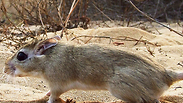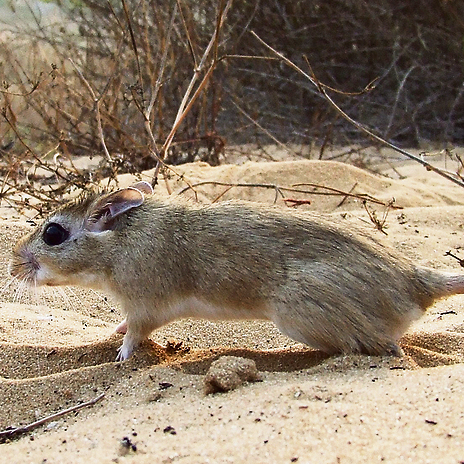
Won't anybody think of the gerbils? The Society for the Protection of Nature in Israel (SPNI) is battling the Jewish National Fund over its plan to transform 800 dunams (200 acres) of natural land in Netiv HaAsara into farmland and greenhouses.
The sand dunes of Netiv HaAsara in the Hof Ashkelon Regional Council are a rich ecosystem, which houses numerous rare species.
The SPNI on Monday submitted its official objection to the plan by the JNF — known in Hebrew as Keren Kayemeth LeYisrael — to the local district planning and building committee.
According to the SPNI, there is no need to destroy rare land to build greenhouses, while empty greenhouses west and north of Netiv HaAsara can be used without harming the area's wildlife.
"The coastal plain's ecosystem is in a serious extinction danger. Most of the area's sand dunes have already been used for housing and agriculture or are threatened by illegal mining," the SPNI siad.
"Only 12.5 percent of the coastal plain's sand dunes are recognized as a nature reserve or a national park. The plan in question suggests transforming 40 percent of this habitat into agricultural land."
Israel Nature and Parks Authority has also filed its official objection to the plan.
The sands of Netiv HaAsara are the habitat of five types of small mammals, among them are the Greater Egyptian gerbil, the Anderson's gerbil, and the Greater Egyptian jerboa.
Netiv HaAsara is also home to many reptiles, including the Desert monitor and the Wedge-snouted skink, lizards native to the area.
In response, JNF said that "the agricultural area is designated to allow Netiv HaAsara's residents to provide for themselves.
"The plan was formulated in coordination with local authorities, the Agriculture Ministry, the Israel Land Administration and all the relevant planning establishments and only after the JNF had conducted a comprehensive ecological survey in the area," JNF said.
















